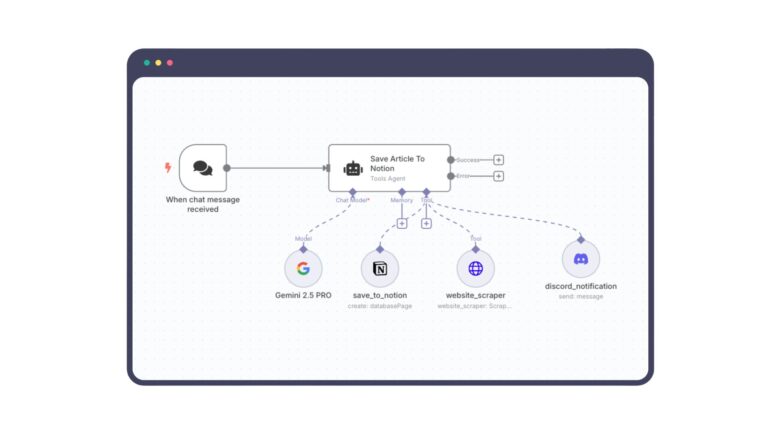“Have You Noticed? The Internet Knows Too Much About You”
You casually search for a pair of sneakers online, and for the next week, ads for shoes follow you relentlessly—on every website, every app, and even your social media feed. Or perhaps, you receive an oddly convincing email claiming to be from your bank, urging you to “verify” your account details. How about that free public Wi-Fi you connected to at a coffee shop, only to wonder later if your personal data was safe?
Have you ever paused to ask yourself: “How much of my online activity is truly private?” These scenarios aren’t mere coincidences. They’re symptoms of a digital ecosystem where your every click, search, and like is being monitored, stored, and sometimes exploited. The internet, for all its convenience and innovation, has become a space teeming with privacy threats—some obvious, others lurking in the shadows. But why should you care? Because these threats are no longer abstract risks—they’re real, personal, and often devastating. Phishing scams steal identities, data breaches expose sensitive information, and invasive tracking creates profiles of you that you never agreed to share.
The Hidden World of Tracking and Profiling
Imagine this, you wake up in the morning, check your favorite weather app, and browse through the latest news on your phone. A few clicks later, you’re scrolling through social media, noticing ads for the coffee maker you were just thinking about. Coincidence? Not quite.
Here’s what really happened. As you opened that weather app, it quietly collected your location data and shared it with third-party advertisers. The news website you visited? It dropped a few cookies on your browser, which are tiny files that track what you click on, how long you stay, and even what you hover over. By the time you reached social media, algorithms had already pieced together your browsing behavior to show you ads you were “most likely” to click on.
The Mechanics Behind the Curtain
Cookies and Trackers
Cookies are not just tasty treats—they’re tiny data packets websites leave in your browser to remember you. While some cookies are harmless, helping websites keep you logged in or save your preferences, others are designed for tracking. Third-party cookies, often installed by advertisers, follow your online journey across multiple websites, compiling data to create a detailed profile of your habits and preferences.
For example, if you search for “best laptops for students,” third-party cookies might log your interest in technology. Soon, you’ll see ads for laptops not just on the site you visited but everywhere you browse online.
Digital Fingerprinting
Even if you delete your cookies, websites can still identify you using something called digital fingerprinting. This technique collects information about your device, browser, operating system, and even screen resolution to uniquely identify you. It’s like leaving behind a digital “fingerprint” that’s nearly impossible to erase.
Cross-Device Tracking
Ever searched for something on your phone and then seen an ad for it on your laptop? That’s cross-device tracking in action. Advertisers link your activities across devices using identifiers like your IP address or logged-in accounts, ensuring they can follow you no matter where you go.
Social Media and Personalized Ads
Social media platforms are masters of profiling. Every like, share, or comment provides a piece of the puzzle. Platforms analyze this data to categorize you by interests, demographics, and even mood. This information is then sold to advertisers who tailor their campaigns to reach you at your most receptive moments.
The Impact on You: Why Tracking and Profiling Should Concern You
At first glance, tracking and profiling might seem harmless, even helpful. Who wouldn’t want ads tailored to their interests or reminders about products they were considering? But take a closer look, and you’ll see how invasive and unsettling this can become.
Imagine you’ve been browsing for information about a health condition, perhaps looking up symptoms or treatments. Within hours, you’re bombarded with ads for medication, doctor consultations, and medical insurance. But what if someone else, perhaps a family member or a colleague, uses your device and sees these ads? Suddenly, your private health concerns are inadvertently exposed. That’s the reality of tracking—your personal moments become a data point for advertisers, leaving you vulnerable to misjudgments or breaches of privacy.
Your Life Through a Data Profile
The profiles built about you aren’t just based on what you consciously share. They’re stitched together from tiny, seemingly insignificant actions—every search query, every like, every click. And they’re far more detailed than you might imagine.
Take a moment to think about how much someone could infer about you from these details:
- Your Location: GPS tracking from apps knows where you live, work, and go for leisure.
- Your Interests: Searches and clicks reveal hobbies, passions, and concerns.
- Your Financial Status: Shopping habits, even window shopping, hint at spending power and financial stability.
- Your Relationships: Social media connections, tagged photos, and communication patterns paint a picture of your social circle.
- Your Behavior: The times you’re online, the types of sites you visit, and the content you engage with indicate your routines, habits, and even mental state.
These data points combine to create a profile so comprehensive that it feels like a stranger knows you better than your closest friends.
When Profiles Work Against You
The problem isn’t just that companies know you; it’s that they might misinterpret or misuse what they know. For example:
- Unwanted Judgments: A search for “debt consolidation tips” could label you as financially unstable, influencing the credit card offers or loan terms you receive.
- Manipulative Advertising: If you’ve shown interest in weight loss, you might be bombarded with ads for questionable supplements or unproven treatments. These ads often prey on insecurities, nudging you toward impulsive purchases.
- Privacy in Jeopardy: Sharing a device with someone else—your spouse, kids, or coworkers—means they might inadvertently see ads or suggestions tied to your private searches, creating awkward or intrusive situations.
- Wider Societal Concerns: Employers, insurers, and other institutions increasingly use online data to make decisions. What happens if your profile labels you incorrectly, impacting opportunities or access to services?
The Emotional Toll
Beyond the tangible consequences, there’s an emotional cost to being tracked and profiled. You may feel like your privacy is constantly under siege, that you’re being watched even in moments that should be entirely your own. Over time, this erodes trust—not just in platforms and advertisers, but in the very fabric of online interaction.
Do you ever hesitate to search for something deeply personal or controversial because you worry it might “follow” you later? That hesitation itself is evidence of how invasive tracking can influence your behavior.
What You Can Do to Fight Back
- Use Privacy-Focused Browsers: Switch to browsers like Brave or Firefox, which block trackers by default.
- Block Cookies and Trackers: Install extensions like Privacy Badger or Ghostery to stop hidden trackers.
- Enable Do Not Track (DNT): While not foolproof, this browser setting tells websites you don’t want to be tracked.
- Go Incognito: Private browsing modes can limit cookie storage, though they don’t stop all tracking.
- Use VPNs: A VPN hides your IP address, making it harder for trackers to follow you across sites.
Your Data Is Currency—Who’s Spending It?
The truth is, you’re not the customer in the world of tracking and profiling—you’re the product. Your data is the currency companies trade to refine their algorithms, target their ads, and boost their bottom lines. While you might gain some convenience, it’s often at the cost of autonomy and control over your personal information.
But it doesn’t have to be this way. By understanding the mechanisms of tracking and taking proactive steps, you can reclaim your privacy and navigate the internet on your own terms. The question isn’t whether your data matters—it’s whether you’re willing to let others decide how it’s used.
Are you ready to take control? The choice is yours.








